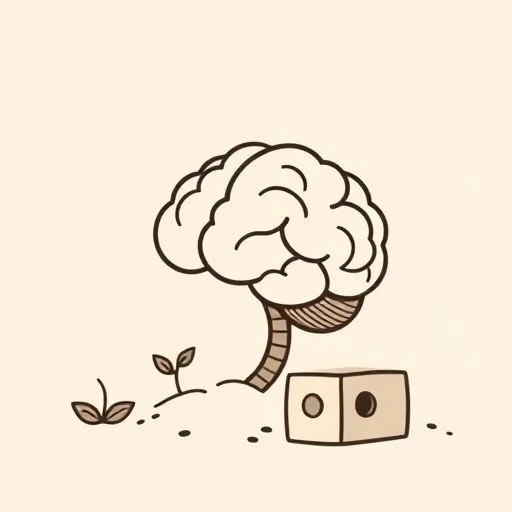
You know that feeling when you’re all set for a family trip—bags packed, itinerary perfect—only to realize you forgot the one thing that makes it all work? But when we look under the hood, a surprise emerges—A new survey shows 87% believe their teams are prepared for AI adoption… but here’s the kicker: around two-thirds say their biggest snag is making sure they can double-check what AI churns out. It’s not about the tech itself—it’s about our human ability to question, adapt, and think critically. And guess what? That’s the very skill we want to nurture in our children as they grow up in this AI-shaped world!
Last weekend, my seven-year-old QA’ed my grocery list—she pointed out we forgot eggs!
The Excitement Is Real—But So Are the Unseen Hurdles

Imagine planning a big family adventure—everyone’s buzzing with excitement, maps are open, and the destination looks amazing. But then… you hit a snag. Maybe the GPS leads you down a dead-end street, or the weather turns unexpectedly.
That’s where the real work begins—adjusting, problem-solving, and relying on your own intuition. That’s exactly what’s happening in the world of AI right now. Leaders are thrilled about the possibilities—87% feel their organizations are ready to embrace AI.
But here’s the twist: 66% say their teams lack the quality assurance skills to double-check AI’s work. It’s not that the technology isn’t impressive—it’s that we still need our human brains to ask, ‘Is this right? Does this make sense? Can we trust it?’
And isn’t that what we do every day as parents? We don’t just accept things at face value—we question, we adapt, we make judgment calls. That ability to think critically—to validate and verify—is becoming one of the most valuable skills in an AI-driven world.
Why This QA Gap Matters for Our Children’s Future

Think about those moments when your child asks, ‘Why?’ It might be about why the sky is blue, why we brush our teeth, or why certain rules exist. That curiosity—that desire to understand and verify—is the foundation of critical thinking.
And in a world where AI can generate answers in seconds, that skill is more important than ever. The survey highlights challenges like tech debt (27%), unclear strategy (22%), and security risks (30%)—all areas where human judgment, ethics, and oversight are essential.
These aren’t just technical issues; they’re about responsibility, foresight, and care. As parents, we’re not just raising kids who can use technology—we’re raising kids who can question it, improve it, and ensure it serves humanity well.
Whether it’s discussing why we limit screen time, how we verify information online, or why kindness matters in digital interactions, we’re building that QA mindset every day. And that’s something no AI can replace.
How We’re Already Building These Skills—Without Even Trying

Ever watched your child figure out a puzzle, negotiate with a friend, or come up with a creative workaround for a problem? That’s QA in action! It’s not about formal training—it’s about nurturing curiosity, resilience, and independent thought.
Here’s the beautiful part: many of the things we do naturally as parents align perfectly with the skills needed to thrive alongside AI. When we encourage questions instead of just giving answers… When we let kids make mistakes and learn from them… When we model how to double-check information or think through decisions…
We’re teaching them to be critical thinkers and ethical validators. It’s like giving them an internal compass for navigating a world full of AI-generated content.
Our kids might grow up using AI tools we can’t even imagine yet—but their ability to think, question, and care will always be their superpower.
Turning AI Challenges into Family Opportunities

So, how do we turn those big tech ideas into playful family moments? Start with conversations. When AI in education comes up—whether in a news headline, a school project, or a fun app—talk about it.
Ask questions like, ‘How do we know this is accurate?’ or ‘What if it made a mistake?’ Encourage your child to be a detective—to look for clues, cross-check facts, and trust their instincts.
Make it playful! Turn verification into a game—’Let’s find two sources that say the same thing’ or ‘What’s another way we could solve this problem?’ Embrace those ‘why’ moments—they’re not just curiosity; they’re critical thinking in action.
And remember, you’re not alone in this. The survey shows that even professionals are figuring it out as they go. We’re all learning together—and that’s okay! The goal isn’t perfection; it’s progress.
The Heart of It All: Trust, Adaptability, and Hope

At the end of the day, the survey’s findings remind us of something deeply human: technology advances, but our need for trust, ethics, and adaptability remains constant. Those engineering leaders aren’t just worried about code—they’re worried about confidence, clarity, and care.
And isn’t that what parenting is all about? We’re not just teaching our kids how to use tools; we’re teaching them how to be thoughtful, responsible, and hopeful human beings.
Whether it’s navigating AI’s potential pitfalls or celebrating its possibilities, we’re guiding the next generation to blend innovation with integrity. So the next time you hear about AI challenges, remember—you’re already part of the solution.
Every question you encourage, every problem you solve together, every moment you pause and think critically… you’re building a foundation that no algorithm can replace. How amazing is that? Our kids aren’t just growing up with AI; they’re gearing up to make it better—now that’s a road worth exploring together!
Source: Survey Surfaces Software Engineering Challenges Following Adoption of AI, DevOps.com, 2025/09/11
